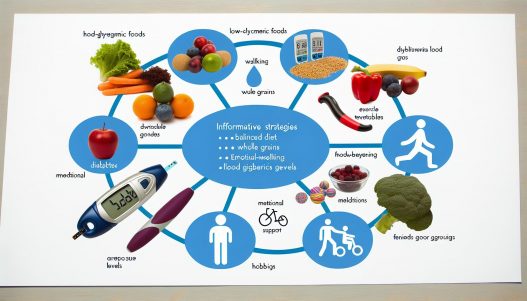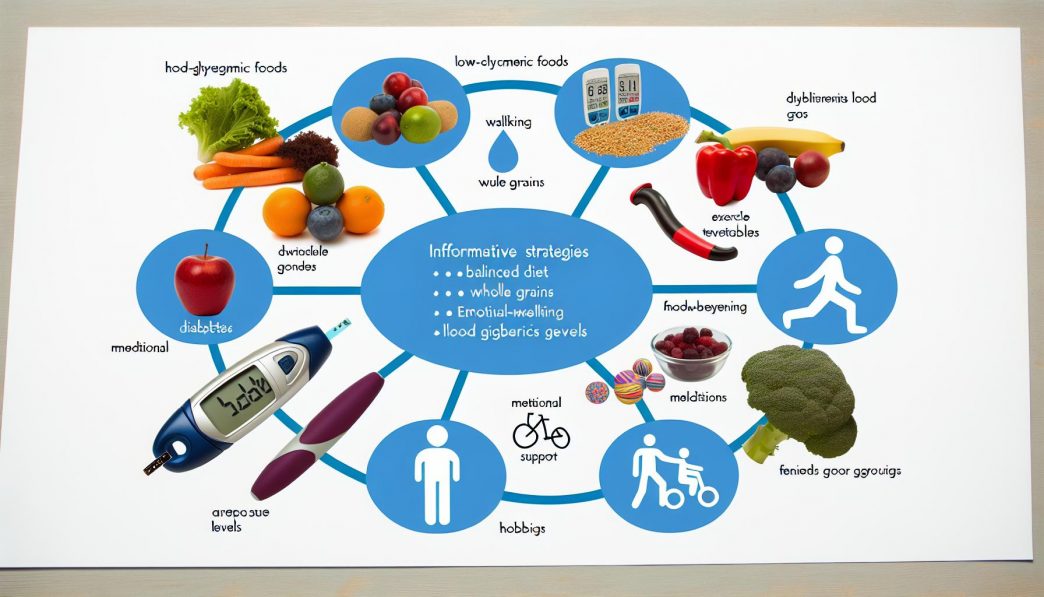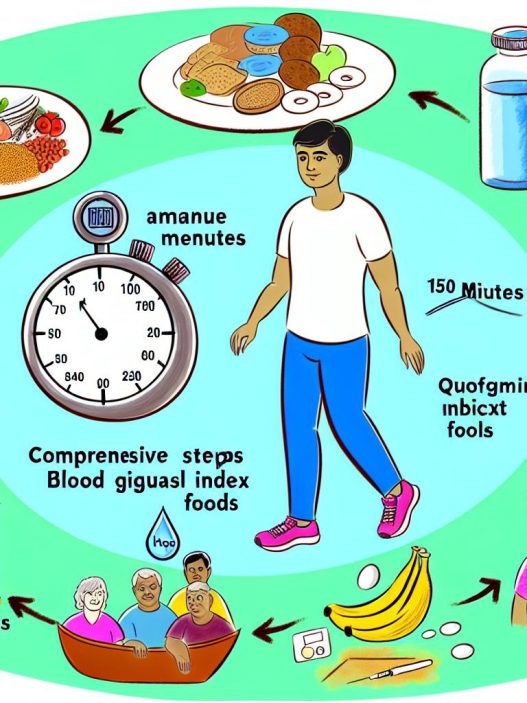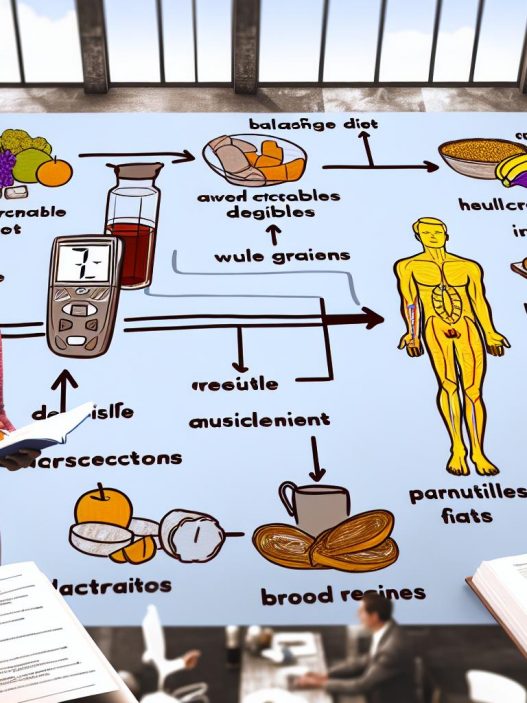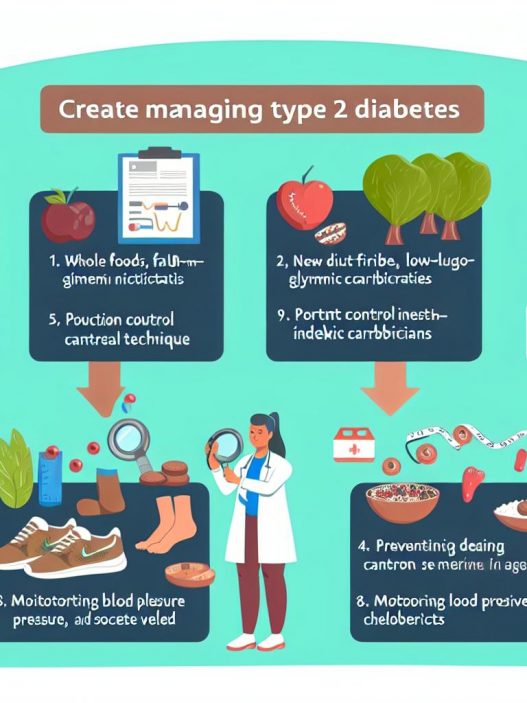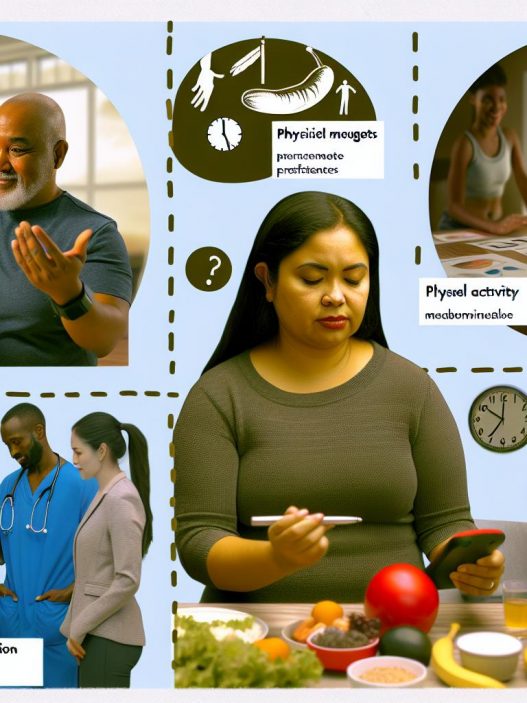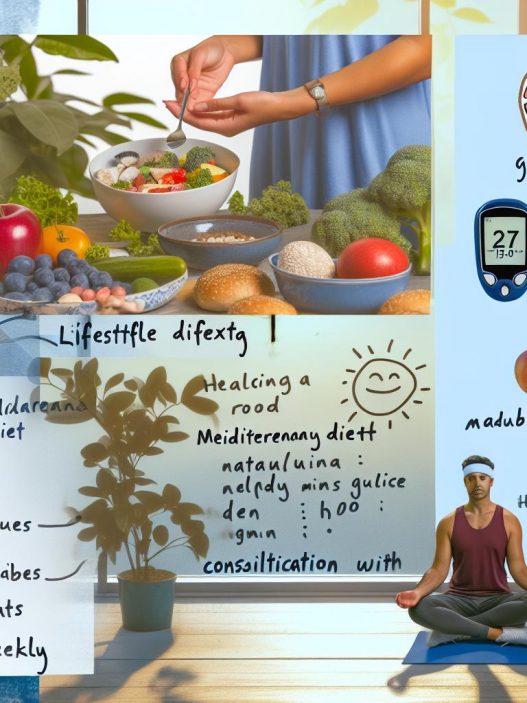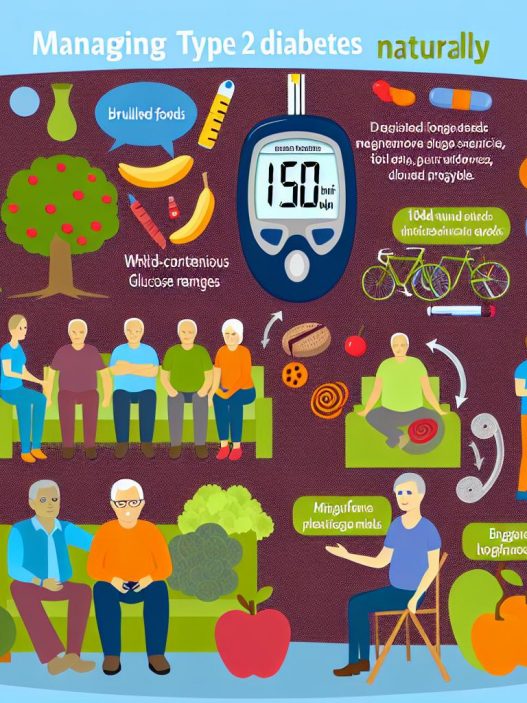# Practical Tips for Managing Type 2 Diabetes Effectively
Managing type 2 diabetes can be challenging, but with the right strategies, individuals can lead a healthy and fulfilling life. Understanding the importance of diet, exercise, regular monitoring, and medication adherence is crucial. In this article, we will explore practical tips for managing type 2 diabetes effectively to help you gain control over your health and well-being.
Understanding Type 2 Diabetes
Type 2 diabetes is a chronic condition that affects the way the body metabolizes sugar (glucose). Unlike type 1 diabetes, where the body doesn’t produce insulin, in type 2 diabetes, the body either resists the effects of insulin or doesn’t produce enough insulin to maintain normal glucose levels. The rise in blood sugar levels can lead to serious health complications like heart disease, nerve damage, kidney damage, and eye damage.
To effectively manage type 2 diabetes, it is essential to be informed about the disease. Knowing what triggers your blood sugar spikes and understanding your individual needs will empower you to make informed decisions about your health. Awareness of your body’s response to different foods and activities can help you make better lifestyle choices and improve your overall quality of life.
Importance of a Balanced Diet for Diabetes Management
One of the most significant aspects of managing type 2 diabetes is maintaining a balanced diet. A well-thought-out meal plan can stabilize blood sugar levels and promote overall health. Including a variety of fruits, vegetables, lean proteins, whole grains, and healthy fats is essential. It is crucial to prioritize low-glycemic foods, as they have a slower, more gradual effect on blood sugar levels.
Portion control is another vital component of a balanced diet. Overeating, even healthy foods, can lead to elevated blood sugar levels. Utilizing measuring cups and keeping a food diary can help you stay on track. Additionally, consider consulting a registered dietitian to customize your meal plan based on your specific needs, preferences, and goals.
Regular Physical Activity and Its Role in Diabetes Management
Engaging in regular physical activity is another fundamental pillar of managing type 2 diabetes. Exercise helps improve insulin sensitivity, which allows the body to use glucose more effectively. The American Diabetes Association recommends at least 150 minutes of moderate-intensity aerobic activity every week, along with strength training exercises twice a week.
Walking, cycling, swimming, and dancing are excellent options for aerobic exercises that can easily be incorporated into daily routines. Finding activities that you enjoy will make it easier to stick to a routine. Furthermore, introducing strength training can enhance muscle mass, which is crucial for boosting metabolism and improving glucose control.
If you have been inactive, start slowly and gradually increase the intensity and duration of your workouts. Always consult with a healthcare provider before beginning a new exercise program to ensure that it is safe and suitable based on your individual health status.
Monitoring Blood Sugar Levels Regularly
Regular monitoring of blood glucose levels is essential for effective diabetes management. Keeping track of your blood sugar can help you recognize patterns, identify potential issues, and make informed choices regarding diet and lifestyle. It is recommended to test your blood sugar levels at different times of the day to understand how food, activity, and stress affect your levels.
Utilizing a continuous glucose monitor (CGM) can simplify this process, providing real-time data and trends. Keeping a log of your readings can help you and your healthcare team develop appropriate strategies for managing your blood sugar levels effectively. Moreover, understanding your target blood sugar ranges—before meals, two hours after meals, and during fasting—is crucial for maintaining optimal control.
Embracing Medication as Part of Your Management Plan
For many individuals with type 2 diabetes, lifestyle changes alone may not be enough to achieve optimal blood sugar control. Medications play a critical role in the management of diabetes and can either assist the body in producing more insulin or improve its ability to utilize insulin effectively. Your healthcare provider will determine the best medication regimen based on your personal health needs and preferences.
It is essential to adhere to your prescribed medication schedule, as irregular use can lead to fluctuations in blood sugar levels. Regular follow-ups with your healthcare provider will help you monitor the effectiveness of your treatment plan and make necessary adjustments as needed. If you encounter side effects or have concerns about your medications, do not hesitate to discuss them with your healthcare team for potential alternatives or modifications.
Stress Management and Emotional Well-Being
Managing type 2 diabetes is not purely a physical endeavor; emotional and mental well-being are equally important. Chronic stress can negatively impact blood sugar levels, so developing effective stress management techniques is essential. Techniques such as yoga, meditation, deep breathing exercises, and engaging in hobbies can help alleviate stress and improve emotional resilience.
Moreover, support systems, whether from friends, family, or diabetes support groups, can provide encouragement and understanding. Discussing your challenges and achievements with others who are also managing diabetes can be empowering and educational. Don’t hesitate to seek professional help if you find it challenging to cope emotionally; therapists or counselors specializing in chronic illness management can provide valuable guidance and strategies.
Conclusion
Effectively managing type 2 diabetes involves a holistic approach that includes a balanced diet, regular physical activity, blood sugar monitoring, medication adherence, and emotional well-being. By implementing these practical tips and fostering an understanding of your condition, you can lead a healthier, more satisfying life. Always remember to consult with your healthcare provider when making changes to your management plan to ensure safety and effectiveness. Through education, collaboration, and commitment, living well with type 2 diabetes is possible.










